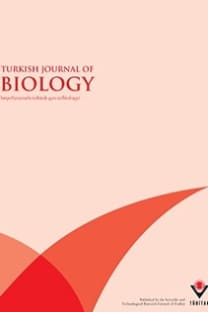Monitoring and disinfection of biofilm-associated sulfate reducing bacteria on different substrata in a simulated recirculating cooling tower system
Key words: Sulphate reducing bacteria, biofilm, cooling tower, galvanized steel, stainless steel, copper
Monitoring and disinfection of biofilm-associated sulfate reducing bacteria on different substrata in a simulated recirculating cooling tower system
Key words: Sulphate reducing bacteria, biofilm, cooling tower, galvanized steel, stainless steel, copper,
- ISSN: 1300-0152
- Yayın Aralığı: Yılda 6 Sayı
- Yayıncı: TÜBİTAK
Investigation of heavy metal resistance in some bacterial strains isolated from industrial soils
Ersoy SEVGİ, Gökhan CORAL, A. Murat GİZİR, M. Kemal SANGÜN
Elif İpek CENGİZ, Erhan ÜNLÜ, Mehmet BAŞHAN
Sevil ALBAYRAK, Ahmet AKSOY, Osman SAĞDIÇ, Ümit BUDAK
Belgin ERDEM, Ergin KARİPTAŞ, Tayfun KAYA
Cadmium-induced antioxidant status and sister-chromatid exchanges in Vicia faba L.
Serpil ÜNYAYAR, Ayşin Güzel DEĞER, Ayla ÇELİK, Fazilet Özlem ÇEKİÇ, Sertan ÇEVİK
Soumik SARKAR, Pradeepa NARAYANAN, Ajay DIVAKARAN
The interactive effect of heavy metals and UV-B radiation on two cucumber cultivars
Shweta MISHRA, Suruchi SINGH, Rajesh Kumar SHARMA, Shashi Bhushan AGRAWAL
Ultrastructural changes in rat liver by methyleugenol and evaluation of some biochemical parameters
Ayşegül ÇERKEZKAYABEKİR, Gülnur KIZILAY, Figen ERTAN
Yu HAI-QING, Zhang CHUN, Ding CHUN-BANG, Ma XIAO, Zhou YONG-HONG
